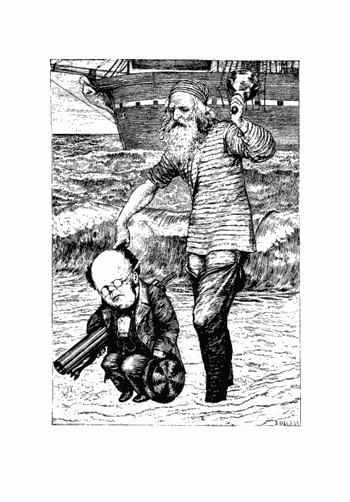Pursuing Zhuangzi as Rhymester: A Snark-hunt in Eight Fits
The second, loss,
Third, Expedition for
The "Golden Fleece"
Fourth, no Discovery--
Fifth, no Crew--
Finally, no Golden Fleece--
Jason--sham--too.
E. Dickinson
Note to Reader: The following findings appear in the field notes and Dictaphone transcriptions of Sinological investigator A.L. Jameson, as edited by his assistant, T. Bellman.
Fit the First: Diversity
Call me Aristotle -- Aristotle Lynn Jameson, Sinologist by trade and taxonomist by avocation. After the smashing success of my recent Anatomy of Chinese Literature I cast about for a worthy sequel and landed a research grant to examine uses of rhyme in Zhuangzi.
Zhuangzi has offered its Sinological pursuers unlimited fun and frustration, because no one ever could quite pin it down. My expedition, however, uses a new trick to catch its prey -- examining Zhuangzi's uses of verse. Problems do arise, because Zzian verse presents the same panoply of offbeat, perplexing examples you'd expect from knowing the book as a whole -- I will demonstrate that diversity en passant. How to characterize, categorize, and assess verse's significance in Zz? The question reveals what my assistant, the Bellman, would call a Western project; to understand we must reduce our quarry to an orderly system governing objective, stable, hypostatized things, each with a unique name. We will want a theoretical apparatus that, judiciously applied to observational data, yields the desired intelligible explanation. Indeed, we may proceed like a taxonomist, net and specimen case in hand, stalking unknown species to extend our knowledge of exotic taxa. So it's fitting that today I have embarked on my quest, wading through the surf very much like the hero frontispieced in my assistant's copy of The Hunting of the Snark, technical apparatus and assistant firmly in tow... [see insert]
Indeed, Zz smiles upon my interpretative paradigm. No other ancient Chinese canon possesses such extraordinary variety of vividly animated critters; no other observes them with such aptness and sympathy. Consider, for example, the biographical tale of Zz himself poaching in Diaoling park. Zz cautionary tale follows several about Confucius beset, learning difficult lessons; in its successor, Yangzi -- conceivably Zz's teacher -- instructs his disciples not to consider themselves wise! Observing cicada, mantis, and magpie, Zz grasps something essential about creatures. My Bellman remarks that Zz, contemplating the chain of predation, understands the bonds among kine. But the "observer paradox" bedeviling Western scientists leaves him a near-fatal blind spot; he cannot observe his own "thing-ness." This poacher's tale, by the way, ends with a sober verse recapitulation mixing -ieng and -ien rhymes; G misses the verse.

